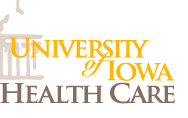- Education Topics
- Achievement Gap
- Alternative Education
- American Education Awards
- Assessment & Evaluation
- Education during COVID-19
- Education Economics
- Education Environment
- Education in the United States during COVID-19
- Education Issues
- Education Policy
- Education Psychology
- Education Scandals and Controversies
- Education Reform
- Education Theory
- Education Worldwide
- Educational Leadership
- Educational Philosophy
- Educational Research
- Educational Technology
- Federal Education Legislation
- Higher Education Worldwide
- Homeless Education
- Homeschooling in the United States
- Migrant Education
- Neglected/Deliquent Students
- Pedagogy
- Sociology of Education
- Special Needs
- National Directories
- After School Programs
- Alternative Schools
- The Arts
- At-Risk Students
- Camps
- Camp Services
- Colleges & Universities
- Counties
- Driving Schools
- Educational Businesses
- Financial Aid
- Higher Education
- International Programs
- Jewish Community Centers
- K-12 Schools
- Language Studies
- Libraries
- Organizations
- Preschools
- Professional Development
- Prom Services
- School Assemblies
- School Districts
- School Field Trips
- School Health
- School Supplies
- School Travel
- School Vendors
- Schools Worldwide
- Special Education
- Special Needs
- Study Abroad
- Teaching Abroad
- Volunteer Programs
- Youth Sports
- For Schools
- Academic Standards
- Assembly Programs
- Blue Ribbon Schools Program
- Educational Accreditation
- Educational Television Channels
- Education in the United States
- History of Education in the United States
- Reading Education in the U.S.
- School Grades
- School Meal Programs
- School Types
- School Uniforms
- Special Education in the United States
- Systems of Formal Education
- U.S. Education Legislation
- For Teachers
- Academic Dishonesty
- Childcare State Licensing Requirements
- Classroom Management
- Education Subjects
- Educational Practices
- Interdisciplinary Teaching
- Job and Interview Tips
- Lesson Plans | Grades
- Professional Development
- State Curriculum Standards
- Substitute Teaching
- Teacher Salary
- Teacher Training Programs
- Teaching Methods
- Training and Certification
- For Students
- Academic Competitions
- Admissions Testing
- At-Risk Students
- Career Planning
- College Admissions
- Drivers License
- Educational Programs
- Educational Television
- High School Dropouts
- Higher Education
- School Health
- Senior Proms
- Sex Education
- Standardized Testing
- Student Financial Aid
- Student Television Stations
- Summer Learning Loss
University of Iowa Hospitals and Clinics

Basic Information
Address: University of Iowa Hospitals and Clinics
200 Hawkins Drive
Iowa City, IA 52242
Phone Number: 319-356-2263
Fax Number: 319-384-9362
Email: shirley-haley@uiowa.edu
Director: Wayne Bowers, PhD
Action Shots
* There are currently no photos associated with this listing.
Additional Information
Treatment Services: Inpatient, partial hospitalization/day program, outpatient
Treatment Model: Cognitive-behavioral therapy
Founded: 1976
Ages Served: all
Gender: all
Duration: no limits
Weekend Admission Available: No
Interview Required: Yes
Setting:
Hospital based program
Pricing: call for information
Accreditation Licenses: JCAHO
Area of Focus:
Anorexia nervosa and bulimia nervosa
Treatment Philosophy: A continuum of care to restore healthy mental, physical, and social functioning.
History:
The Eating Disorder Program in the Department of Psychiatry at the University of Iowa is the only comprehensive treatment program in the State of Iowa that serves adults, adolescents and children. As a program, the University of Iowa has been treating individuals with an eating disorder since 1976. This program has a continuum of care that spans outpatient, partial hospital and inpatient care. It has the ability for a step-up or a step-down approach to care offering wide latitude for those individuals who need assistance. This program works with state of the art empirically validated treatments with a wide range of professionals involved in the care of individuals who struggle with an eating disorder. The location of the program within University of Iowa Hospitals and Clinics affords patients the best psychiatric and medical care. Individuals who develop an eating disorder often have multiple psychiatric and medial problems. As a program within the hospital, we can immediately respond to patients medical needs. The eating disorder program was one of the first to develop an inpatient treatment milieu based on cognitive therapy principles that are see as vital in the treatment of this disorder. The program continues to explore treatment outcome to assess and change to the most sophisticated and validated methods of treatment. In addition, being housed in an academic Department of Psychiatry the program has been able to add to the professional literature as to the best methods and sequence of treatment especially in the use of inpatient and partial hospital care.
Facility Description:
The program staff is exceedingly experienced and crosses many professions including Psychiatrists, Psychologists, Nursing, Social Work, Nutrition, and Rehabilitation Therapy. Individual team members have upwards of 35 years experience in the care of individuals of this disorder. This program is one of a handful of programs that will treat males with an eating disorder. The Psychologist with the program, Dr. Wayne Bowers is internationally know in the psychosocial treatment of eating disorders with advanced training in the use of Cognitive Therapy and specifically its adaptation to inpatient and partial hospital. programs. Dr. Bowers also works across the full spectrum of the program working in the outpatient, partial hospital and inpatient areas.

